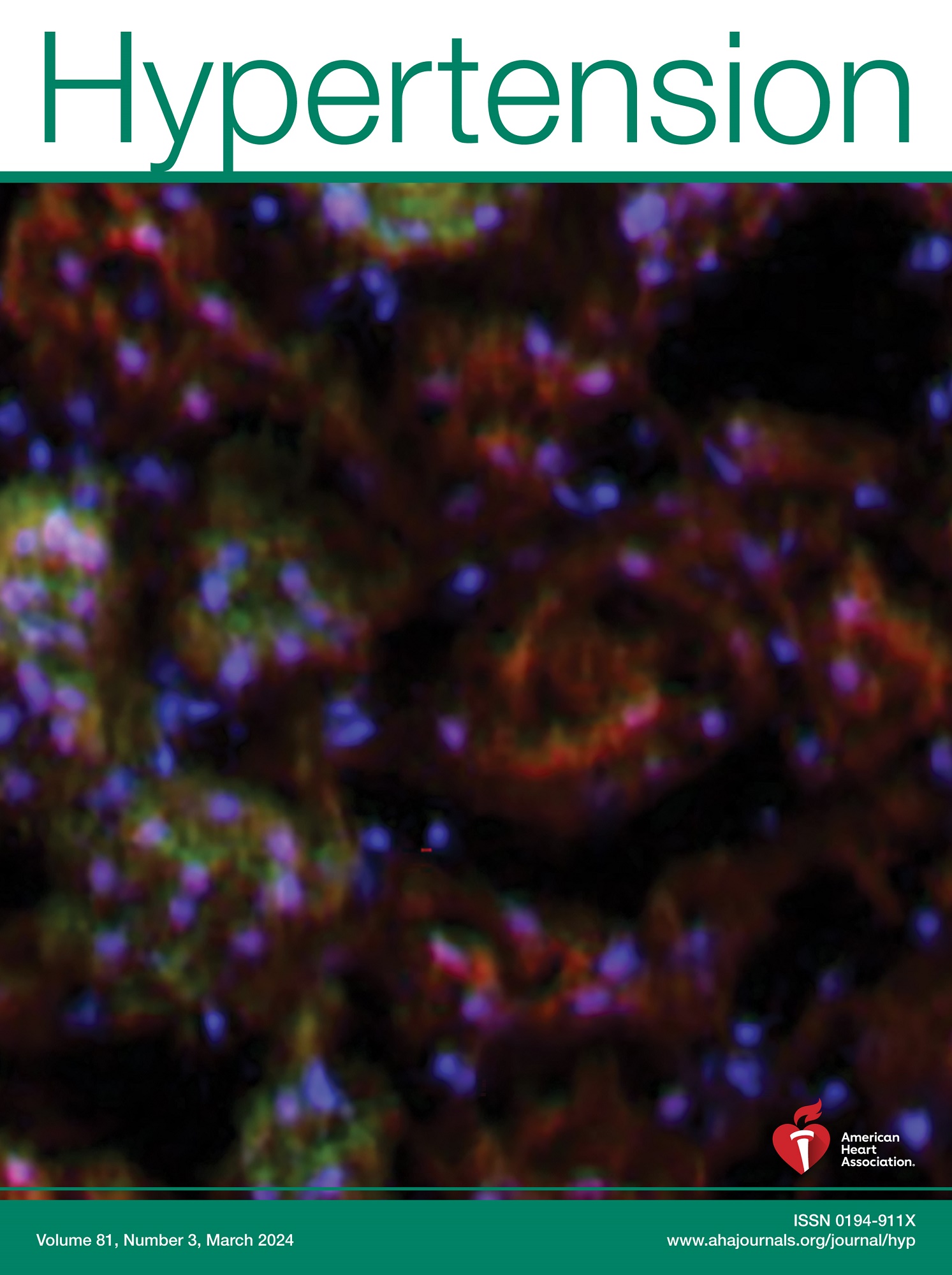银屑病小鼠模型中G-CSF介导肾中性粒细胞增加和肾损伤。
IF 8.2
1区 医学
Q1 PERIPHERAL VASCULAR DISEASE
引用次数: 0
摘要
背景银屑病是一种自身免疫性皮肤病,与慢性肾脏疾病和高血压的发病率和严重程度增加有关。牛皮癣皮肤炎症与这些合并症的联系机制尚不清楚。方法采用流式细胞术、放射性遥测血压测量、组织学和elisa法评估角化细胞特异性过表达铁e2 (kc -铁e2)及其对照小鼠实验性银屑病的肾损害。结果与对照组相比,慢性皮肤炎症的KC-Tie2小鼠出现蛋白尿、肾小球硬化和血压升高的组织学证据。流式细胞术显示,KC-Tie2小鼠循环和肾脏中性粒细胞选择性显著增加,同时肾脏中性粒细胞胞外陷阱形成增加。KC-Tie2小鼠也表现出骨髓颗粒生成增加,同时皮肤和全身G-CSF(粒细胞集落刺激因子)增加,G-CSF是颗粒生成的主要介质。最后,G-CSF的中和降低了KC-Tie2小鼠的肾中性粒细胞和肾损伤。结论银屑病小鼠模型中g - csf依赖性增加肾中性粒细胞积累和肾损害。结果提示慢性银屑病皮肤炎症与肾损害之间通过g - csf介导的颗粒生成存在新的联系,为银屑病器官间通讯提供了新的见解,并为银屑病相关肾功能障碍的治疗提供了潜在的新靶点。本文章由计算机程序翻译,如有差异,请以英文原文为准。
G-CSF Mediates Increased Renal Neutrophils and Kidney Damage in a Psoriasis Mouse Model.
BACKGROUND
Psoriasis is an autoimmune skin disease associated with increased incidence and severity of chronic kidney disease and hypertension. The mechanisms linking psoriasis skin inflammation with these comorbidities remain unclear.
METHODS
We used flow cytometry, radiotelemetric blood pressure measurements, and histological and ELISA-based assessments of renal damage in mice with experimental psoriasis induced by keratinocyte-specific overexpression of Tie2 (KC-Tie2) and their littermate controls.
RESULTS
Compared with littermate controls, KC-Tie2 mice with chronic skin inflammation developed albuminuria, histological evidence of glomerulosclerosis, and elevated blood pressure. KC-Tie2 mice had a selective and marked increase in circulating and renal neutrophils, along with increased neutrophil extracellular trap formation in the kidneys by flow cytometry. KC-Tie2 mice also exhibited increased bone marrow granulopoiesis along with increases in cutaneous and systemic G-CSF (granulocyte colony-stimulating factor), the primary mediator of granulopoiesis. Finally, neutralization of G-CSF decreased renal neutrophils and kidney damage in KC-Tie2 mice.
CONCLUSIONS
Our findings demonstrate G-CSF-dependent increases in renal neutrophil accumulation and renal damage in a mouse model of psoriasis. Results suggest a novel link between chronic psoriasiform skin inflammation and renal damage via G-CSF-mediated granulopoiesis, providing new insight into interorgan communication in psoriasis and a potential new therapeutic target for the treatment of psoriasis-related renal dysfunction.
求助全文
通过发布文献求助,成功后即可免费获取论文全文。
去求助
来源期刊

Hypertension
医学-外周血管病
CiteScore
15.90
自引率
4.80%
发文量
1006
审稿时长
1 months
期刊介绍:
Hypertension presents top-tier articles on high blood pressure in each monthly release. These articles delve into basic science, clinical treatment, and prevention of hypertension and associated cardiovascular, metabolic, and renal conditions. Renowned for their lasting significance, these papers contribute to advancing our understanding and management of hypertension-related issues.
 求助内容:
求助内容: 应助结果提醒方式:
应助结果提醒方式:


